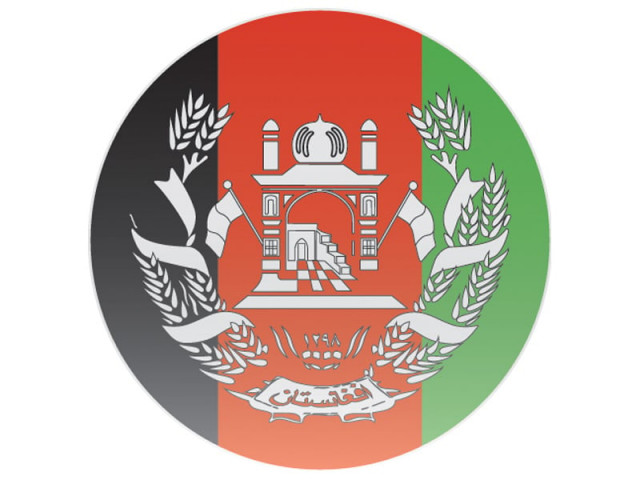Afghanistan: Distrust surrounds Pakistan’s move to woo ethnic groups
Analysts wary of its quest for greater influence in the neighbouring state.

Islamabad is now also calling for intra-Afghan talks consisting of all groups in a bid to come up with a political solution for the long-standing conflict.
Pakistan recently received a senior anti-Taliban Afghan Hazara leader as a state guest in its quest to win over the sympathy of non-Pashtun communities in the neighbouring state.
Head of Hizb-e-Wahadat Mardam-e-Afghan Party Haji Mohammad Mohaqiq led an eight-member delegation of the Hazara community which met Prime Minister Raja Pervaiz Ashraf and Foreign Minister Hina Rabbani Khar this week.
The move is meant to appease ethnic communities critical of Pakistan’s role in establishing peace in the region and what many call Islamabad’s backing for the Afghan Taliban.
A statement issued by the Prime Minister House following the meeting expressed “Pakistan’s desire to have relations with all ethnic and political groups in Afghanistan.”
Similarly, a statement issued by the foreign ministry quoted Hina Rabbani Khar saying: “Pakistan wants to have close relations with all ethnic and political groups of Afghanistan including Hizb-e-Wahdat Mardam-e-Afghan Party.”
This was Mohaqiq’s second visit to Pakistan in less than two years. It reflects Pakistan’s move to boost interaction with non-Pashtun ethnic groups at a time when most foreign combat troops are set to withdraw from Afghanistan by the end of 2014 and as Islamabad struggles for more influence in the war-torn country.

A ministry official recently confided to The Express Tribune that Pakistan has also extended invitations to other ethnic leaders as part of its policy to “create better understanding with all ethnic groups” in the neighbouring country.
In line with this policy, Pakistan Ambassador to Kabul Mohammad Sadiq visited the grave of Tajik leader Ahmad Shah Masood in July 2009. This was shortly after he assumed his new diplomatic role in a rare move that was considered a major trust building measure by Pakistan, which has always been accused by the Northern Alliance of supporting the Taliban.
In their official visits to Afghanistan last year, both Ashraf and Khar met Dr Abdullah Abdullah, the head of the main opposition group, National Coalition of Afghanistan. They also met Tajik leader Ahmad Wali Masood, former speaker and member of National Coalition of Afghanistan Yunus Qanooni, Uzbek leader and deputy head of Junbish-e-Milli Party Faizullah Zaki, and Hazara leader and Vice-President Karim Khalili.
Pakistan assured the leaders that Islamabad is ready to do whatever was in its capacity to facilitate peace in Afghanistan, and stressed that opposition groups can play an important role in achieving stability, progress and development.
Islamabad is now also calling for intra-Afghan talks consisting of all groups in a bid to come up with a political solution for the long-standing conflict.
However, Afghan analysts are suspicious about Pakistan’s interest in specific ethnic or political groups.
A researcher at Afghanistan Analysts Network (AAN), Gran Hiwad says it is not “proper and diplomatic behaviour for Pakistan to interact with specific ethnic and political Afghan leaders.”
Hiwad told The Express Tribune via phone that Afghans have suffered a lot due to ethnic conflicts between 1992 and 2001, the period ruled by mujhaideen groups and the Taliban. “Neighbouring countries were blamed for their role in that conflict.”
He urged Pakistan to encourage religious scholars to sit with Afghan clerics and discuss how to adopt a joint approach against the killing of Muslims.
A former Taliban leader is also critical about what he called “Pakistan’s quest for the policy of strategic depth in Afghanistan.” He added disputes on a few core issues between Kabul and Islamabad were obstacles in the peace process.
“Seeking strategic depth completely in contradiction with ground facts could also be one of those obstructions,” said Mullah Agha Jan Mutasim, former chairman of the Taliban political commission.
Pakistan faces a huge trust deficit and will have to adopt a clear policy to win the hearts of war-weary Afghans, many of whom hold Pakistan responsible for years of suffering.
Published in The Express Tribune, February 23rd, 2013.













COMMENTS
Comments are moderated and generally will be posted if they are on-topic and not abusive.
For more information, please see our Comments FAQ